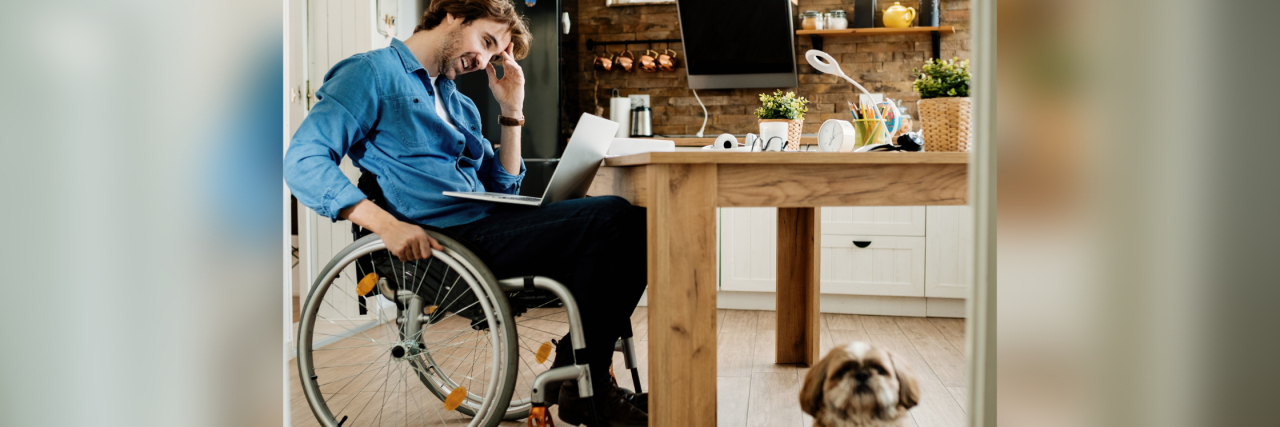Feeling Overlooked and Marginalized as a Job Seeker With a Disability
One year ago, my world completely changed. On March 13th, 2020, I left my job for what would be the last time. I was informed I was furloughed due to the COVID-19 pandemic. I was told my furlough would hopefully only be about six weeks. Six weeks turned into six months. Six months turned into a year. I know this is a common story. I know I’m not alone. What makes my story different is that I am unemployed and disabled.
I was born with a birth defect, spina bifida. I have limited feeling and limited mobility below the waist. I use a combination of crutches and a manual wheelchair to get around. When I was born, the doctor told my parents I would likely never walk and would have an intellectual disability. So I consider myself lucky in some respects.
This was not the first time I’ve had job woes. Like most people in the disabled community, I’ve always had problems getting a job. According to the Bureau of Labor Statistics, the employment rate for disabled people was 17.9% in 2020. Compare that to 68.1% for non-disabled people.
I’ve applied to thousands of jobs. I’ve gone back to school to improve my skills. I even contacted my local Vocational Rehabilitation office. This is a state-run organization that helps disabled people with job training and placement. My counselor told me I was making a decent amount in disability benefits and I should continue. According to her, it was just easier. This was someone whose job is to help me transition out of the system.
Of course, I’ve had some interviews, but they always ended with the same result. The interviewer would see my crutches and immediately some issue would arise. The duties connected to the job changed and I was no longer qualified. A day before the interview, I’d be informed the position was already filled. Despite the fact that I drive, the commute would be an issue. I was offered the job and then the offer was rescinded. I’ve been given so many excuses why I wasn’t hired. Due to the rejection, frustration and uncertainty, I developed anxiety and mild depression.
After many years, I thought my luck had changed. In 2017, I was offered a part-time job as a graphic designer. I was happy to finally get paid doing something I love. It was part-time, but I was assured full time was in my future if I wanted it. That never happened. Then the pandemic hit. On a Monday in March, I was told to not come in the next day and that was it.
For the last year, I’ve been stuck at home, waiting. Sending out application after application. I’ve had a few virtual interviews. One even went through a few rounds, interviewed by a variety of departments including Human Resources. Since the whole process was through Zoom, and I was only seen from the shoulders up, I mentioned my disability to HR. I was assured it wasn’t an issue. Then, as was the pattern, I was left wondering. I made several calls to find out my status. The calls went unanswered for six weeks. I finally received an email that they had hired someone else. Legally I didn’t have to disclose my disability. I only mentioned it for full disclosure. For my honesty, I feel I lost another opportunity.
I’m disabled. My legs do not work like able-bodied people’s legs. That is it. I’m intelligent. I’m logical. I’m talented. I’m a problem solver. But, because of a genetic anomaly, I’m not given the same opportunities. I’m marginalized. I’m often an afterthought. In this country, people who receive social services are often considered a “burden.” Many of us do not want to be a burden. Many of us long to be productive members of society but are not given the opportunity, or we are told it’s easier to continue receiving social services. Easier for who? Spina bifida is not my disability. Society’s lack of inclusivity and accommodation is the real disability.
Getty image by Drazen Zigic.

